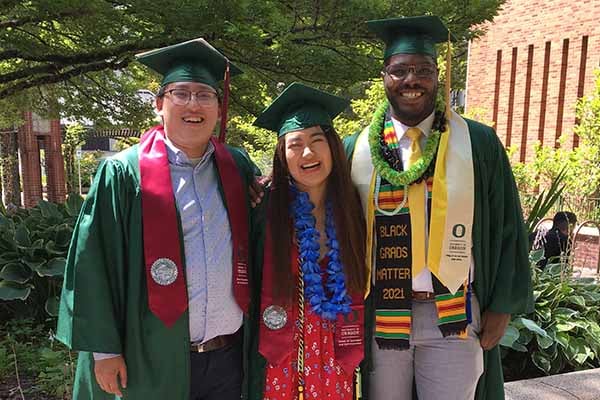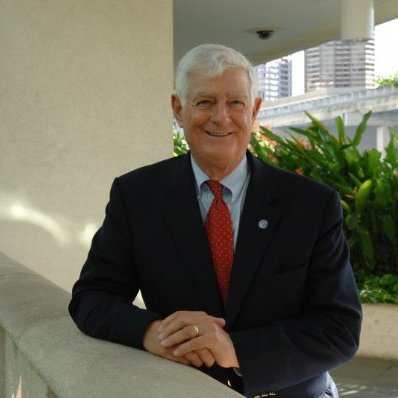By Chloe Meyere, Duck Career Network Communications Associate and UO Student
Richard Allen ’58
Ob/Gyn, Former President, UOAA Board of Directors
A Solid Educational Foundation
Allen began at the University of Oregon as an eager undergraduate in the fall of 1954. His love of science drove his ambition to pursue medicine. However, Allen was not interested in sticking to the “science bubble.” Instead, he strove for a well-rounded college experience by joining a fraternity, holding class officer positions within ASUO, and being a member of the Skull and Daggers Honor Society on campus. He also found an interest in the humanities, taking English, history, and social science classes whenever his schedule allowed.
Medical School and Deciding on a Career
Several years later, after obtaining a master’s in education from UCLA, Allen sought to continue on to medical school. He was particularly drawn to New York Medical College because of their interest in well-rounded applicants. Naturally, Allen fit the profile and was accepted. Allen's experience in New York proved extremely productive. He was exposed to an incredibly broad medical experience and graduated as an honors student after accruing multiple awards. One of these included the Roche Award, presented to the school's most outstanding students who distinguished themselves. Along the way, he discovered his interest in obstetrics and gynecology.
“I initially wanted to do pediatrics, but some aspects of that were just too sad. Ob/Gyn was a really rewarding choice, especially because bringing babies into the world is one of the happiest specialties in the medical profession. I also liked the different components of the practice: not only was I able to do surgery, I could also work as a primary care physician and perform deliveries,” Allen recalls enthusiastically.
He knows that for many, choosing a specialty is a struggle. He suggests keeping an open mind, as many don’t know what they are interested in until they actually experienced it.
The Residency Years
After receiving his MD in 1965, the now Dr. Allen began his residency. During this time, and while acting as the chair of the Accreditation Council for Graduate Medical Education (ACGME), Allen developed the “Six Core Competencies” that most residency programs use to consider applicants today.“These standards help to identify people who are able to communicate not only with patients, but family members as well. On top of that, they embody balance between professionalism and compassion. Medical knowledge is only one of the six competencies,” Allen explains. “While I ran my residency program, I wanted the best of the best: I wanted the people who had the top grades, but I also wanted doctors who were able to handle the person to person interactions.”
Reflecting on his own four years as a resident, Allen worked to perfect these very skills. He genuinely enjoyed the work, but describes the experience as “brutal.”
“They had us working 120 hours per week. It was exhausting, and it was not for everyone. You have to expect that you will be doing this for a couple years,” he emphasized. “If you don’t have the stamina or the ability to be on your feet for that long, you may want to consider something else. Don’t get me wrong; it’s possible. You just have to be very passionate about what you’re doing. I think it was important for me.”
Luckily for current-day residents, the maximum hours a hospital can work their residents is now 80 hours per week. Interestingly, Dr. Allen served on the ACGME board during the time this change was made. Nonetheless, Allen reiterates that though these restrictions have made residency less exhausting, being a resident is not easy.
Stay tuned for part 2 of the Dr. Allen Career Profile Series to learn about his career in obstetrics and gynecology, and his involvement in the medical community.









